Getting Through Litigation with Someone Who Understands

Kristi Wright interviews Dr. Gita Pensa about her hit podcast that helps physicians talk about and deal with the stress of litigation.
When I first heard about Dr. Gita Pensa and her podcast, “Doctors and Litigation: The L Word,” I was intrigued, as physicians rarely speak out about their medical malpractice experience. I listened to the first episode on my drive to an industry event. Five hours and several episodes later, I was obsessed. Dr. Pensa has a real passion for helping physicians reduce their litigation stress by telling her own story.
A scheduled introduction this May with Dr. Pensa quickly turned into passion-fueled excitement and a full impromptu interview. We started at the impetus for Dr. Pensa’s podcast—a lawsuit that was filed against her that lasted twelve long years. It was this malpractice case and all the emotions that came with it that inspired Dr. Pensa to begin her podcast and was the focus of our conversation.
Kristi: Curi provides medical malpractice insurance and fiercely defends our members. When providers reach out to our Claims consultants after being named in a lawsuit, we immediately see and hear the stress. We help them through the process, meeting with them early on to explain the stages of litigation, attending mediations and sitting with them during trial, reassuring them, and keeping them informed throughout. Although we offer extensive support, we have never felt or dealt with what it is like to be sued as a physician. Was it your experience with this level of stress that inspired you to create your podcast?
Dr. Pensa: Yes. I would say it was the same sort of stress and distress that you probably see in those people with whom you're sitting, the defendants that you represent. I was that defendant for several years. I was the sole physician defendant in a high-value case that wound up lasting 12 years. Due to an appeal, I went to trial twice. I would say that for the first good seven or eight years, I was suffering a lot.
I didn't have any offers of outside support. I didn't even know that what I was experiencing had a name. I judged myself a great deal for not being able to handle it. I felt like I handled other things pretty well. As an emergency physician, I was handling life-and-death situations all the time. Yet, I just really couldn't understand why I just couldn't get a handle on things during the trial process.
After the trial, for which the verdict was in my favor, I expected to feel better, and I didn't. I was still miserable going back to work. I didn't want to be a doctor anymore, but I had loans, so I was going to keep showing up. And then I'd say I hit a real rock-bottom point after my verdict was overturned on appeal.
When I found out that I’d have to go back to trial, I realized I had to take a deep look into myself and decide I couldn’t be like this anymore. The truth was I couldn't feel this way and expect to survive intact. I needed to start looking into ways to help myself. And in doing that, I learned a lot. I think I've found ways that might work to help other people who are in the same position.
Kristi: When you were going through your lawsuit and that experience, did you feel like you had anyone you could talk to or resources to help you?
Dr. Pensa: Nobody was talking openly about this sort of thing. I didn’t know who my malpractice carrier was, who to call, or what the first step was. My hospital Chairman told me what to do first. He was kind, but I didn’t want to put this all on him or cry in front of him. There wasn’t a peer support group. No one reached out with some resources. I just felt I had to sort it out and suck it up.
Kristi: It’s easy to see how this feeling of isolation and uncertainty impacted you. Is this why you thought later that your podcast could serve as a resource for others?
Dr. Pensa: I wanted to make the thing I wish I had when I was going through my trial. I want to make something good out of all that confusion and stress I had for the better part of a decade. I want it to be a resource for physicians going through a similar experience.
Kristi: With more than one hundred and forty thousand downloads, I can see you’ve achieved your goal. How did you get started with your podcast?
Dr. Pensa: As I was trying to figure out how to like my job and life again, I joined an academic faculty at Brown University. I was supposed to have a research interest or a specialty. That’s when they approached me with the idea of social media, blogs, and podcasts. I took instructional technology classes at Brown and learned a lot, including how to do podcasts. I started doing podcasts for an academic journal.
I was also doing lectures and toying with the idea of a book on how to share my knowledge about the litigation process and related stress. Then it hit me—a podcast. I went on social media and asked groups of doctors if anybody wanted to talk about their experience in litigation. I was blown away by how many people reached out and said that they wanted to talk about what it was like for them, especially if it meant it might help other people.
I wound up doing 50-60 interviews with people, and that was the foundation for the podcast. At the start it was more of a healing process for me and something I shared with a few people I thought it might help. They passed it to others and it kind of took off on its own.
Kristi: It’s tremendous to hear you’ve had so many interviews. Was there a particular interview or story that stood out to you?
Dr. Pensa: Although not used in an episode, one doctor shared a very human and emotional moment following his case verdict where he and the plaintiffs embraced. I just have to admire what physicians I have spoken to endured, and how they found a way to still practice and be happy in their profession.
Kristi: Have you heard from listeners who may have been impacted by your podcasts?
Dr. Pensa: I save all feedback, but one of the first comments I received in 2020 confirmed my passion for my podcast. I can read it verbatim: “Doctor Pensa, I hope you are well. I know you are busy, and I will keep it short. Thank you so much for your podcast. It really has been so helpful to me and brought me knowledge and peace. Taking care of COVID patients during this pandemic has been hard. It has become harder each week as I've watched my colleagues each become sick as well. I received a malpractice suit this week during this time and it has been very hard to deal with. I feel very lost. And your advice has given me strength. Thank you. Please continue what you are doing. You made a difference in my life.”
I started hearing from doctors who had spouses listen to the podcast to help them understand the process and what they were going through.
Kristi: Clearly, we both need a moment to recover from that listener's quote. How powerful. What is one thing you hope a listener takes away from your podcast?
Dr. Pensa: It’s really about opening up the litigation conversation and how we can start to make a medical culture change around this topic. The biggest thing I’d like to change is the notion that you can’t talk about this. We’ve got to change the pervasive belief among physicians that they should not talk about this or seek help. While physicians cannot talk about the facts of the case, they can discuss the stress that it causes.
Kristi: If you could change one thing for a physician going through litigation, what would that be?
Dr. Pensa: I would change the degree of isolation and shame they feel. I think that physicians will experience isolation and shame no matter whether they think they had anything to do with the named outcome or not. And I think those two things are largely manufactured by how it is that we in medicine as a whole deal with or don't deal with litigation. We don't talk about it. In medical school, there is absolutely no modeling of how to get through the litigation process, how to do it well, how to take care of yourself. But unfortunately, we know that isolation and shame are drivers of suicide, and we know that litigation is a driver of suicide. We know that physicians have twice the general population's rate of suicide. So, these are things that we need to move the needle on.
Kristi: Understanding that physicians going through litigation may not know where to turn for needed support, I’m excited that Curi has a Clinician Peer Support program. I’m curious about your thoughts on such a program and if you think physicians would be more willing to talk with a peer.
Dr. Pensa: I’m a big fan of peer support programs. If you have a peer support program that is highly visible and well utilized and thought of as safe, and if the physicians in there have had similar experiences, then physicians might think it’s okay to use. There also should be resources to help physicians move forward.
Kristi: I think what you are doing is not only impressive but very much needed. I’m appreciative of your time today and look forward to speaking with you more about opportunities to create additional resources together.
Dr. Pensa: The more we can talk to physicians about their beliefs around litigation and how they feel it impacts them as a person and professional, the more we can help. I look forward to it.
You can find Dr. Pensa’s “Doctors and Litigation: The L Word” podcast on Apple Podcasts or visit her site. To learn more about Curi’s Clinician Peer Support program, please speak to your Curi Claims Consultant.
The information and services provided in the Peer Support Program are intended for informational purposes only. They do not serve as a substitute for legal or medical advice or medical assessments or treatment. The program offerings do not constitute medical care, and no patient-provider relationship is established. If medical or legal services are needed, please seek out a professional.
About the Author
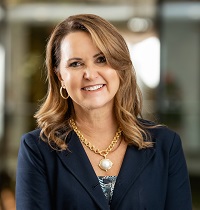



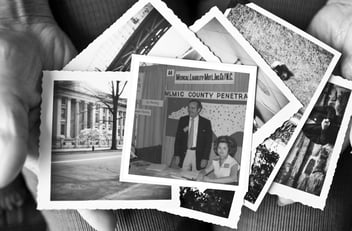

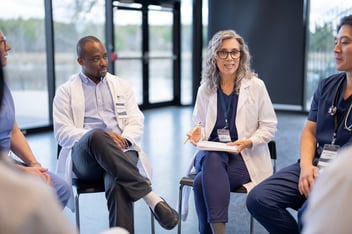

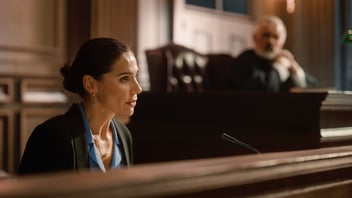
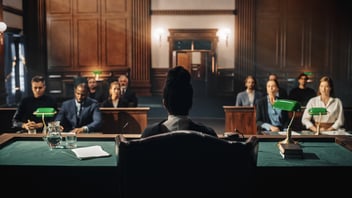
Comments